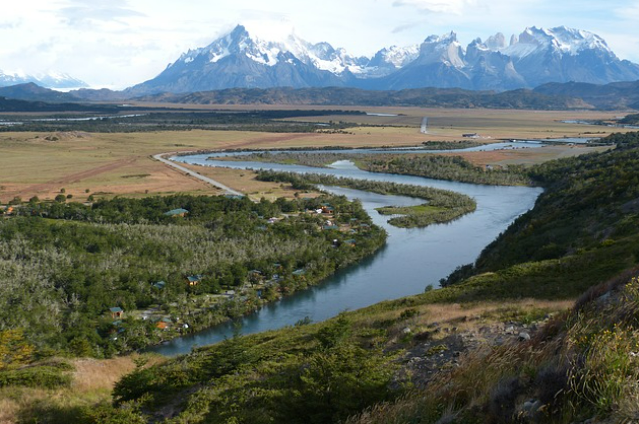
Magallanes, Chile
Image by David Mark from Pixabay
The drafting of the new Chilean Constitution was completed by July 4. It will now be slated for a referendum for the purpose of approval on September 4.
In October 2020, 78% of Chilean approved a proposal to draft a new constitution. The then President of Chile had approved this referendum following large-scale protests which saw over a million people taking to the streets. The current President is again under the face of protests as he aspires to reform the country's health, education, housing, and pensions system. He actually assumed office when the economy of Chile is found in a terrible condition experiencing high inflation, the crisis of the pandemic, and uncertainty owing to the Russian-Ukraine Conflict.
A Glance at the Constitution of Chile:
According to the World Bank, Chile has been among Latin America's fastest-growing economies in recent decades. However, more than 30% of the population is economically vulnerable and income inequality remains high. Actually, the protests have outbursted due to the involvement of the private sector in social realms. The continuing Constitution of Chile was drafted under the military dictator Pinochet. Later, the presidential term was curtailed from six to four years and the power of the armed forces was also butchered down. Earlier, senators were appointed for life but now there are only appointed senators. 79% of voters have suggested that a directly elected constitutional convention should be entrusted with this duty. This convention has reserved seats for the indigenous people and represents almost all the different communities present in the population. In order to ensure gender parity, it was mandated that neither gender can have more than 55% representation in the convention. Changes are expected to be brought in the political system, social equality, tax structure, fundamental rights, and rights of nature. A Harmonization Committee will take up the final review of the Chilean constitution - correcting formal inconsistencies and undertaking further substantiations if needed. It is a constitutional mandate that the new text of the constitution must respect the nature of the Republic of the State of Chile.
New Changes to be made in the Constitution:
The new constitution will reform the pension system, ensuring representatives of indigenous communities, environmental protection, and the question of private property.
- Pension System:
Profit-making national or foreign liability companies managed social security funding and the pension system. It was stated that the action was a result of the idea of reducing the role of government in economic affairs. The earlier pension system was not subjected to financial market fluctuations. The new system will replace the private sector-held system with a public one- a demand during the 2019 protests. It is also said that changes in the Chilean pension system could affect the ability of Chilean corporates to raise financing in the local market.
- Mining:
President Boric is outspoken about increasing mining taxes and royalties. He also proposed to set up a national lithium company as Chile is the world's second-largest producer of lithium after Australia. The change in direction can affect long-term investments. There can be changes in property and water rights and unclear terms of compensation if an asset is expropriated.
Recent amendments have stipulated that the state has an 'absolute, exclusive, inalienable and imprescriptible domain on all mines.' Exploiting natural resources has helped Chile prosper but fostered sizeable social inequality. However, the text of the amended permits certain mining concessions.
- Property Ownership & Environment:
The new Chilean constitution would grant freedom to own all properties and goods, except those which 'nature has made common to all men' or which should be collectively owned by the country as a whole. A qualified quorum law would establish requirements for the acquisition of properties to better serve the interests of the nation, including considerations about national security, public health utilities and preservation of the environment. It recognizes that the environment must be preserved and it is the right of the community to live in an environment free of contamination. Approval for free water rights was also introduced. The revised mechanism would prioritize human consumption, stability of water reserves, and indigenous rights.
Nature also has the right to be protected, respected, and regenerated. The State through its institutions must guarantee and promote the Rights of Nature as determined by the constitution and laws.
There are some 26 articles on various Earth-centred principles. Some important articles are here,
- Article 1 deals with climate and ecological crises.
- Article 2 deals with the protection of animals.
- Article 23B deals with the protection of biodiversity.
- Article 33 deals with Environmental Democracy.
The changes that are being made in the constitution can cause widespread changes in Chilean society.
. . .
References:
